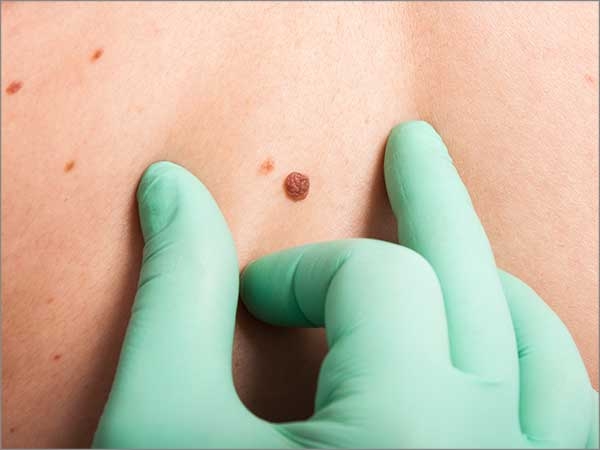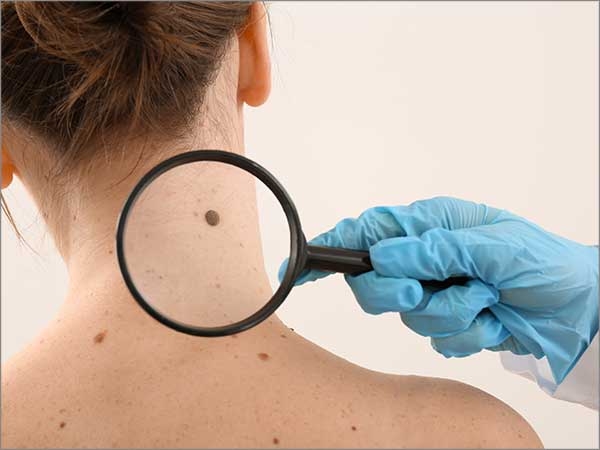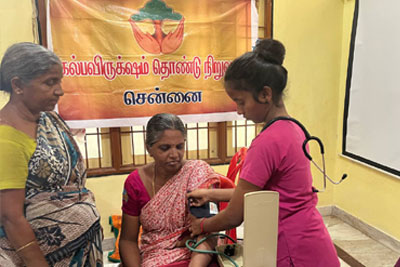Skin Cancer
Skin Cancer is caused by the uncontrolled growth of skin cells. There are a number of risk factors causing skin cancer like chronic exposure to ultraviolet (UV) radiation, chronic skin irritation, pre-existing pigmented skin lesions, genetic defects at birth like xeroderma pigmentosa, chronic non-healing ulcers etc.
The three main types of skin cancer are squamous cell carcinoma, basal cell carcinoma, and melanoma.
The risk of skin cancer can be reduced by limiting exposure to ultraviolet (UV) radiation. To detect skin cancer at its earliest stages check your skin for any suspicious changes. Skin cancer treatment will be successful if the cancer is detected early.
Types
• Basal cell carcinoma
• Melanoma
• Squamous cell carcinoma of the skin
• Rare types like Merkel cell carcinoma
Symptoms
Skin cancer develops mainly on sun-exposed areas of the skin, including the face, scalp, ears, lips, chest, neck, arms, hands, and legs. But it can also form on areas that are rarely exposed to the sun like your palms, genital area, and beneath your fingernails or toenails.
It affects people of all skin tones. In people with dark skin tones, melanoma is more likely to occur in areas not normally exposed to the sun, such as the soles of the feet and the palms of the hands.
Basal cell carcinoma signs and symptoms
Basal cell carcinoma usually occurs in your neck or face.
It may appear as:
• A new waxy or pearly bump
• A flesh-coloured, flat or brown scar-like lesion
• A scabbing or bleeding sore that never heals
Squamous cell carcinoma signs and symptoms
It appears on your hands, face, ears and limbs.
Squamous cell carcinoma may appear as:
• A red, firm nodule
• A flat lesion with a crusted, scaly surface
• Recent change with an increase in size, bleeding and exuberant growth in a non-healing ulcer
Melanoma signs and symptoms
Melanoma can appear anywhere in the body. Melanoma can affect people of any skin tone.
Melanoma tends to occur on the soles or palms, or under the toenails or fingernails in people with darker skin tones.
Melanoma signs include:
• A large spot that is brownish in colour with darker speckles
• A mole that changes size or colour or feel or that bleeds
• Dark lesions on your soles, palms, toes, fingertips or on mucous membranes lining your nose, mouth, vagina or anus
Signs and symptoms of less common skin cancers
Kaposi sarcoma. It develops in the skin’s blood vessels and causes purple or red patches on mucous membranes or on the skin. It is a rare skin cancer that affects people with weakened immune systems, such as people with AIDS, and people who have undergone organ transplants.
Merkel cell carcinoma. This type of skin cancer causes shiny, firm nodules that occur on the skin and in hair follicles. It is most often found on the neck, head, and trunk.
Sebaceous gland carcinoma. It originates in the oil glands in the skin and is quite aggressive. It can develop anywhere and appear as painless, hard nodules. It is most often found on the eyelid.
When to see a doctor
If you notice any changes to your skin that worry you consult your oncologist immediately.
Authored By Dr. M. Banupriya
MBBS, MDRT, FIAMS, Ph.D, CCEPC (Palliative care), Consultant Oncologist













